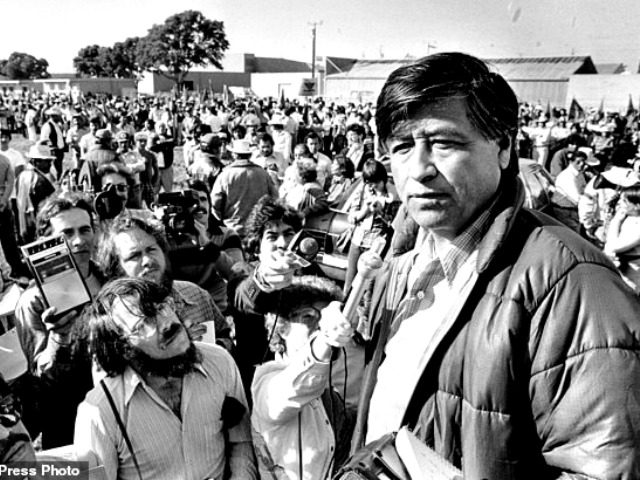The executive director of the non-partisan Center for Immigration Studies (CIS), Mark Krikorian, urged Congress to declare March 31, the birthday of the founder of United Farm Workers union Cesar Chavez, “National Border Control Day” to celebrate immigration enforcement’s positive effects on workers.
“Congress or the president should honor the memory of Cesar Chavez by declaring his birthday National Border Control Day,” Krikorian told Breitbart News.
Chavez, whom NBC News calls a “civil rights hero,” fiercely opposed illegal immigration and saw that relentless waves of migrant labor would make achieving raised wages and benefits for workers impossible. “Whatever he turned into later, in his prime he was a champion of strict control of the borders, to ensure that American workers and American employers would have to duke it out on an even playing field,” Krikorian wrote in National Review Online on Friday. “If he’d succeeded, less-skilled Americans would be better off, instead of seeing their real wages drop 21 percent since 1979.”
The non-profit Economic Policy Institute (EPI) published an article on Friday revealing the raw deal that low-wage guest workers receive:
On César Chávez Day, lost in all the news about the Trump administration’s criminalization and scapegoating of immigrants and attempts to withhold federal funds from cities with policies that protect immigrants, are the 450,000 low-wage-earning migrant workers employed in the United States through the H-2A, H-2B, and J-1 visa temporary foreign worker programs. Many of the workers in these temporary visa programs are in a precarious situation and vulnerable to abuse and retaliation at the hands of employers and their agents.
These “guest-workers” often arrive in the United States in debt, and are tied to and controlled by their employers. Research shows guest-workers are often paid lower wages than similarly situated U.S. workers, and earn wages similar to those of undocumented immigrant workers. This is reminiscent of the Bracero Program—a large guestworker program in the 1940s, 50s, and 60s that admitted hundreds of thousands of Mexican workers to work temporarily on U.S. farms and in other low-wage occupations—and which César Chávez fought against.
While the Bracero Program was shut down in 1964, employers still turn to the handful of low-wage labor programs to provide workers, once illegals are deported, in their ongoing search for cheaper and cheaper labor. Current immigration policies transfer roughly $500 billion from workers to major employers, according to a study by a Harvard professor.
“Is one million low-paid, exploitable, indentured workers—who have no path to lawful permanent residence and citizenship—what the U.S. economy needs? César Chávez would say, ‘No!'” the EPI article’s author writes, going on to say low-paid migrants should have a chance to “become American.”
Uncontrolled illegal immigration makes it impossible for workers to improve their lives and climb out of poverty, Krikorian told Breitbart News, which Chavez understood.
“At the core of his pro-worker activism was support for strong borders and opposition to guest-worker programs. Chavez understood that America’s poor could not better themselves if the government allowed in an endless supply of low-skilled workers from abroad to compete with them,” he said.
A CIS panel of experts on Tuesday explained that many migrants are “assimilating down” in the current era of globallization and mass immigration.

COMMENTS
Please let us know if you're having issues with commenting.